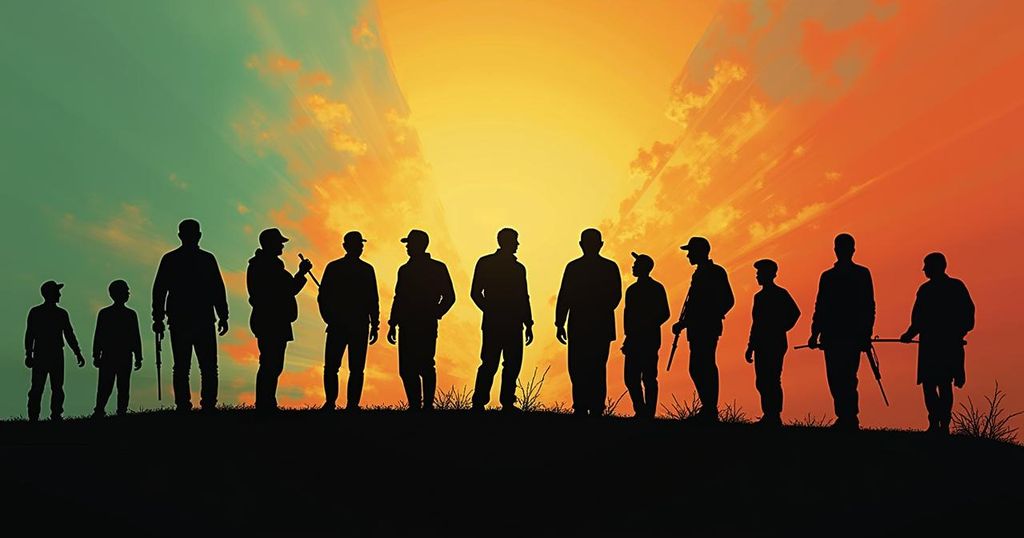2018: A Pivotal Year for Eritrea in Regional Diplomacy

In 2018, Eritrea emerged from isolation, marking a pivotal year characterized by significant regional diplomacy, including peace agreements with Ethiopia and Djibouti, the lifting of U.N. sanctions, and an election to the U.N. Human Rights Council. These developments collectively positioned Eritrea as an essential player in the Horn of Africa’s evolving geopolitical landscape.
In the year 2018, Eritrea transitioned from its long-held reclusive status, becoming a focal point for major regional developments within the Horn of Africa. Following a series of significant events starting in June, President Isaias Afwerki enhanced diplomatic engagement with neighboring nations, culminating in Asmara’s emergence as a diplomatic hub for various regional leaders. The year featured pivotal agreements and improvements in Eritrea’s foreign relations, particularly with Ethiopia and Djibouti, marking a new chapter in regional diplomacy. The decisive moment arrived in July when Ethiopian Prime Minister Abiy Ahmed and President Afwerki signed a peace and cooperation agreement, formally ending the long-standing border dispute. This agreement not only fostered renewed ties between Ethiopia and Eritrea but had positive repercussions for Somalia and Djibouti, signaling a cooperative spirit across the region. A subsequent breakthrough occurred in September, as Eritrea and Djibouti took steps to mend their historically fraught relationship, culminating in a meeting facilitated by the Saudi Arabian government. This engagement was celebrated by officials as a harbinger of peace and stability. In November, the United Nations Security Council unanimously lifted 10-year-long arms embargoes and targeted sanctions on Eritrea, a decision influenced by Eritrea’s peace efforts with Ethiopia and Djibouti. The move was met with both regional acclaim and acknowledgment from Eritrean officials of the need for reparations regarding the unjust sanctions. Additionally, Eritrea was elected to serve on the United Nations Human Rights Council in October. However, this development was met with criticism from various human rights organizations due to the nation’s controversial human rights record. Despite this criticism, Eritrea conceded to the existence of human rights challenges and expressed an intent to address these issues. Finally, on the occasion of the Ethiopian New Year in September, borders between Eritrea and Ethiopia were reopened after decades of closure, facilitating greater freedom of movement for residents of both countries but also resulting in concerns regarding a refugee influx from Eritrea into Ethiopia. Despite functioning border crossings, there have been reports of restrictions emerging later in the year.
Eritrea’s status as a reclusive nation has historically been attributed to its tumultuous relations with neighboring countries, particularly Ethiopia. The two nations were locked in conflict over territorial disputes, particularly following Eritrea’s declaration of independence from Ethiopia in 1993. The tensions culminated in a brutal border war that lasted from 1998 to 2000. After many years of stalemate and diplomatic isolation, 2018 marked a significant turning point for Eritrea. The renewed dialogue and cooperation in the region, spurred by new leadership in Ethiopia under Prime Minister Abiy Ahmed, led to an unprecedented opening of diplomatic channels and a reevaluation of earlier geopolitical stances.
The year 2018 was transformative for Eritrea, characterized by renewed diplomacy and improved relations across the Horn of Africa. Significant agreements for peace and cooperation with Ethiopia and Djibouti underscored Eritrea’s new role as a regional player. The lifting of U.N. sanctions and the election to the Human Rights Council, while controversial, reflect the complexities of Eritrea’s emerging international standing. Overall, 2018 marked a significant shift in Eritrea’s foreign relations, setting a hopeful trajectory for its future interactions within the region and beyond.
Original Source: www.africanews.com







